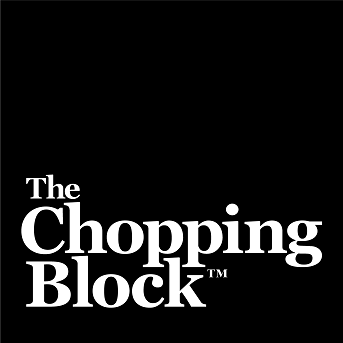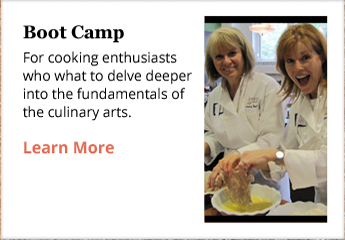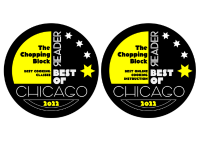Fermentation is a metabolic process with the aid of yeast, bacteria and other microorganisms that breaks down usually a carbohydrate-rich food into carbon dioxide and alcohol or acid. Beer, wine, chocolate, mustard, yogurt - we all enjoy fermented foods whether you’re aware that they've been fermented or not!
There's a wide array of delicious ingredients that get their classic tang, complex flavor, and a healthy dose of probiotics from the fermentation process, and believe it or not, it's ridiculously easy to do at home. Fermenting foods can prevent kitchen waste by prolonging the shelf life and can be a really fun process, especially if you're the type of home cook that likes to experiment.
Many home cooks that take our classes at The Chopping Block are intrigued by fermentation yet tend to have some preconceived notions and apprehension about fermentation. Perhaps you're worried about mold, or making something that goes bad or makes you sick, maybe the idea of a SCOBY (Symbiotic Culture of Bacteria and Yeast) is a little creepy to you. If you're nervous to try it, here are some things I recommend to ease your mind about any fermentation concerns you may have.
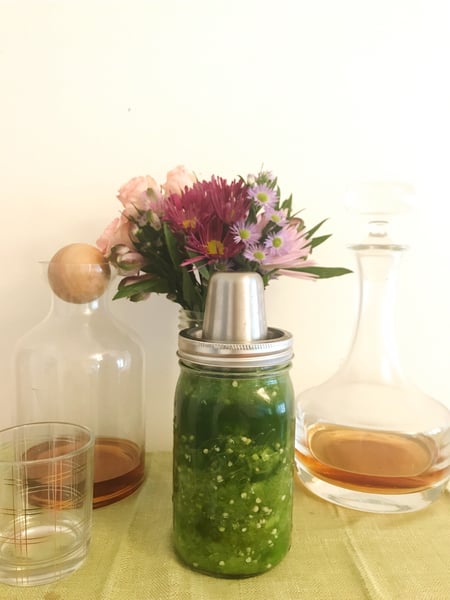
Pepper mash fermenting for hot sauce
1. Use the proper tools and avoid any guesswork
Are you sure your Kombucha is safe to drink? Did you maybe let your vinegar sit for too long? Perhaps you're making sauerkraut by a ratio and you're not sure if you've got a full pound of cabbage? There isn't much you need equipment-wise to start fermenting, but investing in a kitchen scale and pH strips will help you be more accurate. The secret to a success with fermentation is creating an ideal environment for your product. If that means making sure there's 1 ounce of salt to prevent your sauerkraut from molding, well, make sure you weigh that salt! A booklet of 500 pH strips costs about $5 and if you feel like springing for the electric pH tester, that'll set you back a total of $12. The pH of Kombucha is 3.2-2.8, I've been making Kombucha for a few years now, and I can't look at a bottle of booch and be able to tell you the pH, so make it easy on yourself and test to be sure.
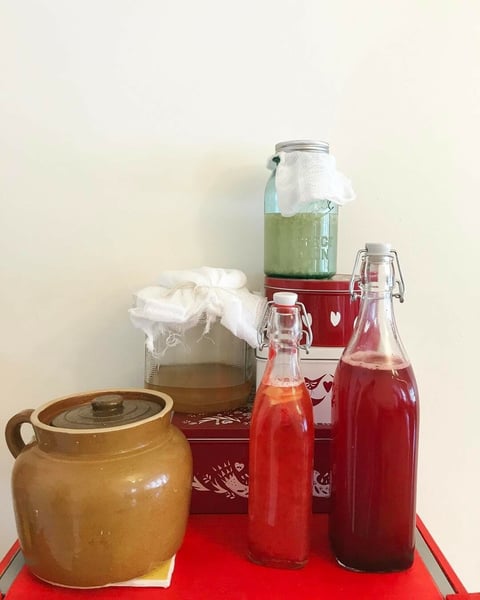
Kombuchas and various other fermenting projects
2. Be consistent
Consistency is hard to achieve with a fermented product, especially for the home cook! There are so many variables that can impact the final taste and quality of whatever you're making. The sourdough bread in San Francisco tastes different than anything else in the world because of the specific yeast in the air that makes their sourdough famous, so where you live may impact whatever you happen to be fermenting. The weather can speed up or slow down your ferments. You can't control the weather, but you can buy the same brand of flour every time!
Pick a place in your house that maintains a relatively consistent temperature (i.e. not next to a radiator, air conditioner vent or anything like that) and make that your "fermentation station." It can even be helpful to use the same grit and brand of salt to ensure it measures the same (more important if you're measuring by volume) and evenly distributes throughout what you're making.
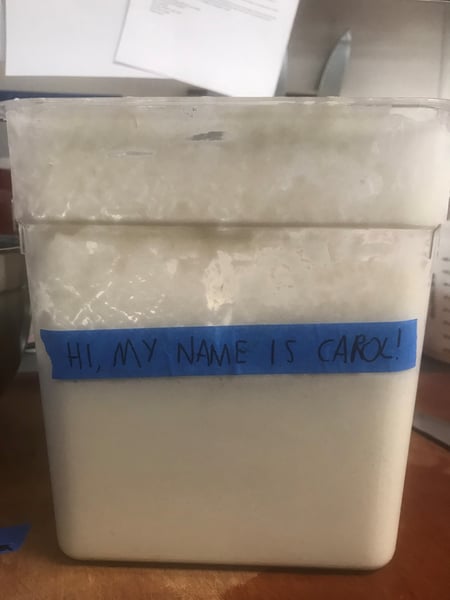
The Chopping Block's Sourdough starter has a name: Carol
3. Check out a class, download our new fermentation guide and join a community
People who ferment things LOVE to chat with other fermentors (sorry if you've been taking a drink every time I type "ferment"!) check out Instagram, chat with people in a Facebook or Reddit forum and compare notes! I know the first time I made Kombucha, there were a lot of "is it supposed to be doing that?" moments with my SCOBY. I'm glad I had people to refer to because 10/10 the answer to my worries was "just let it do it's thing."
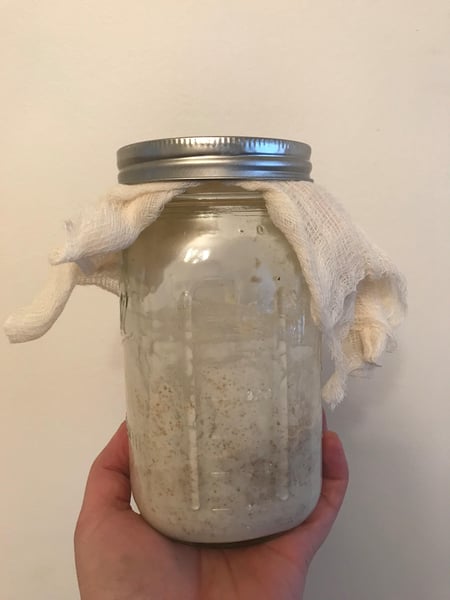
Taking the fermentation class at The Chopping Block is always a wonderful way to ask any specific questions you may have had about a project you've done in the past or are wanting to try in the future! Having a professional chef guide you through the process can really make the first go around a lot easier.
Cooking Lab: The Art of Fermentation next takes place on Sunday, October 21 at 10am at Lincoln Square, so sign up now. Our new guide to canning, pickling and fermenting is also available. Check out our recipes and methods and share your own with us by tagging @the_chopping_block on Instagram!
